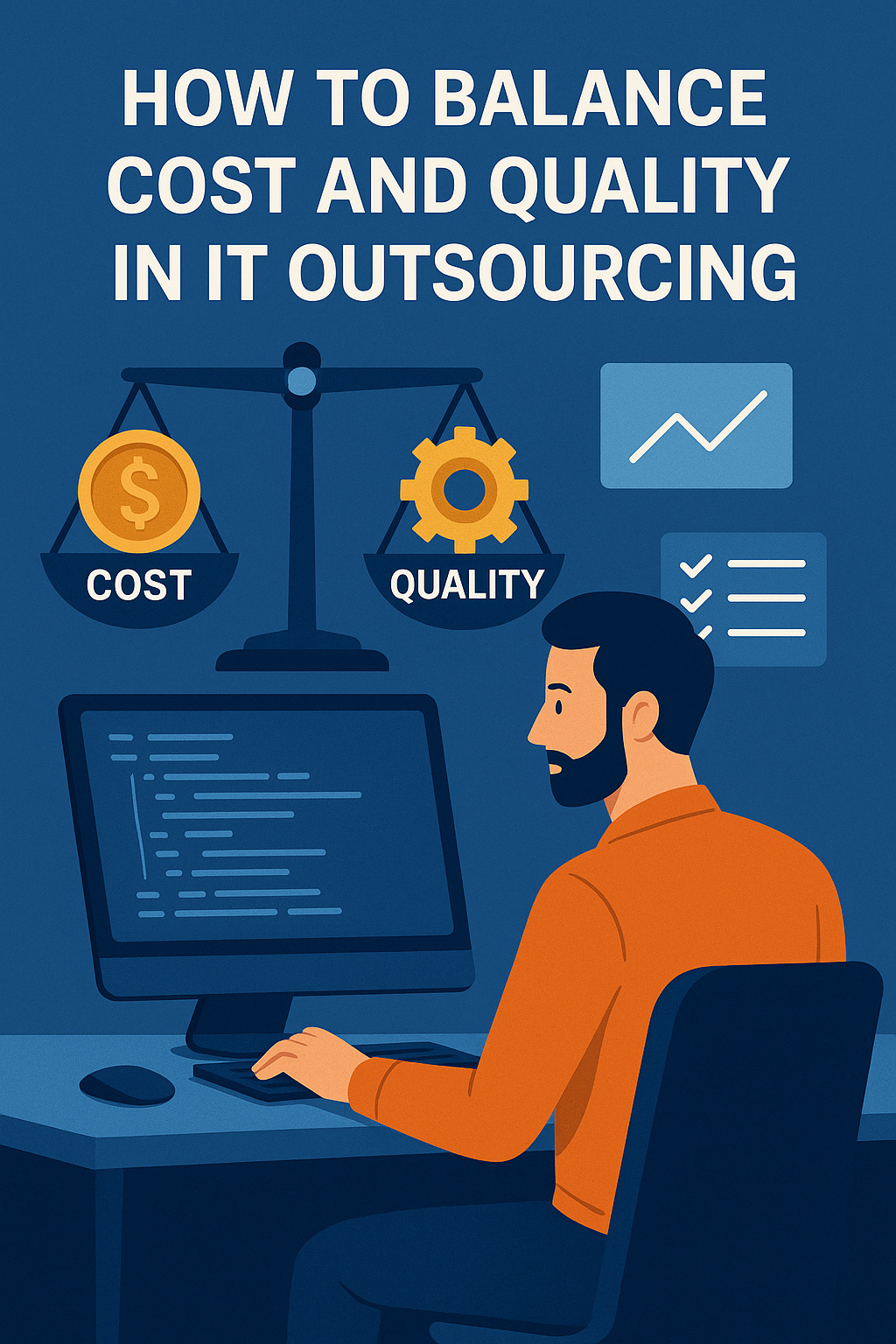Optimizing Cost Without Compromising Quality in IT Outsourcing
- 1 min read
In the world of IT outsourcing, companies often face a dilemma: how do you reduce costs without sacrificing quality?

Striking this balance is critical. Choosing the wrong partner might save you money in the short term but could cost you in the long run due to delays, poor code quality, or misalignment. In this article, we’ll explore actionable strategies to achieve the perfect balance between cost-efficiency and technical excellence.
1. Understand the True Cost of Outsourcing
Outsourcing isn’t just about hourly rates. The total cost of ownership includes:
- Ramp-up time
- Communication overhead
- Rework due to low quality
- Project management efforts
Cheap providers may look good on paper but often lead to hidden costs. A better approach is to assess value holistically.
👉 Learn more about total cost of ownership
2. Choose the Right Outsourcing Model
There are multiple models in outsourcing. Here’s a quick overview:
-
Offshoring
- 💰 Cost: Low
- ✅ Quality Control: Moderate
- 📌 Best For: Cost-saving at scale
-
Nearshoring
- 💰 Cost: Medium
- ✅ Quality Control: High
- 📌 Best For: Balanced collaboration
-
Onshoring
- 💰 Cost: High
- ✅ Quality Control: Very High
- 📌 Best For: Critical high-risk tasks
Nearshoring—especially to regions like Eastern Europe—often offers the best balance between affordability and cultural/technical alignment.

3. Prioritize Vendor Transparency and Proven Process
Ask your outsourcing partner about:
- Their hiring standards and developer vetting process
- Their workflow: Agile, Scrum, or custom?
- Their use of AI tools to optimize output
- How they handle feedback loops and revisions
Vendors like Euro IT Sourcing emphasize these factors to minimize friction and ensure long-term success.
4. Start Small, Then Scale
Instead of committing to a large contract upfront, consider:
- Starting with a pilot project
- Evaluating the first deliverables for quality and speed
- Scaling the team gradually after successful sprints
This helps mitigate risk while testing the collaboration in a controlled way.
5. Leverage Tools and Communication Best Practices
Even the best developers need clear expectations. Combine:
- Daily or weekly stand-ups
- Project tracking tools like Jira or Trello
- Version control systems (Git)
- Asynchronous communication (Slack, Loom)
A solid tooling setup ensures clarity, accountability, and velocity across remote teams.
Final Thoughts
Outsourcing doesn’t have to be a trade-off between cost and quality. With the right partner, tools, and approach, you can scale your business while keeping standards high.
At Euro IT Sourcing, we help companies access vetted Eastern European talent, boosted by AI-enhanced productivity, to deliver on both performance and cost-effectiveness.
Author: Matt Borekci
Client Enablement Leader, Euro IT Sourcing
📩 Contact Us
Ready to explore how outsourcing can work for your business?
👉 Get in touch with us
Let’s help you build a stronger, faster tech team.

Nearshore vs Offshore Development: Pros, Cons, and Best Use Cases
Explore the key differences between nearshore and offshore outsourcing, their pros and cons, and how to choose the right model for your business in 2025.

How to Balance Cost and Quality in IT Outsourcing
Learn how to balance cost and quality in IT outsourcing. This guide explores practical strategies for maintaining high standards while staying within budget—especially when working with partners like Euro IT Sourcing in Eastern Europe and Turkey.